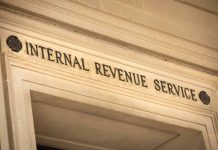
Managing your finances can be more difficult than you anticipate. Trouble can occur and you could face the courts. If you ever find yourself with a pending judgment for a costly lawsuit, your bank account may be in jeopardy. You could have your bank account garnished, frozen, or even levied. This removes the power that you have over your own money in your bank. If you may be facing a situation like this, you may not know how to prepare.
How Can I Protect My Bank Account from Creditors?
When trying to protect yourself against creditors, you have a few tactics you can choose. However, your tactic will rely on the threat that you may be facing. First, you want to identify and understand what you may be dealing with so that you can properly address the issue if it happens.
Possibility 1: A Frozen Bank Account
Your bank account is what holds your liquid assets. Liquid assets just refer to cash on hand or an asset that is easily converted to cash. The cash in your bank account is considered a liquid asset. If a creditor is attempting to get to your bank account, they may try to freeze it. A frozen account means you will not have the ability to access those liquid assets. You will not be able to add any transactions onto the account as long as it is frozen, according to Investopedia.
A random person cannot just freeze your account. Typically a bank account freeze will occur through court order or through the financial institution itself. These freezes usually happen if you owe money to someone whether a business, an individual, or the IRS. It is important to note that your account will not be frozen forever. However, you may need to do something in order to get the freeze lifted. Maybe you need to pay off the whole debt, or set up a payment plan. The exact specifics of what you need to do will be detailed by whoever initiates the freeze.
Frozen Accounts
Frozen bank account functionality varies by financial institution and situation. However, you may be able to continue to make deposits into a frozen account. Unfortunately, withdrawals of any kind like a purchase, a transfer, etc. will not be allowed. A creditor has the ability to freeze up to double the amount you owe. If a financial institution receives a court order to freeze your account they must abide by it immediately upon receiving. If the financial institution is choosing to freeze your account on their own accord then they may not need judgment. The financial institution may not even be required to inform the account holder of the freeze on their bank account.
If your account is already frozen, you may be stuck between a rock and a hard place. You can choose to fight the freeze or you can abide by the terms necessary to lift the freeze.
Possibility 2: Facing Garnishment or a Levy
Not only could your bank account be frozen, but creditors can kick it up a notch. On top of freezing your bank account, they can ask for garnishment or levy on it as well. It is important that you understand the difference between garnishment and a levy.
A garnishment is defined as a tool used to collect funds. This tool provides the ability for creditors to tell your employer to take a portion of your wages from your paycheck to go towards what you owe. On the other hand, a levy provides the capability to a creditor to remove the money in your bank account. The account that they withdraw from is typically either a checking or savings account.
Financial institutions may not be required to provide notice of a garnishment or levy on your bank account, but they only occur when a legal judgment is made against you. Creditors must show the financial institution proof of this court order in order for the financial institution to place the garnishment or levy. These collection methods are commonly used, especially by the Department of Education, and the IRS. Creditors typically choose this route after many unsuccessful attempts at collecting the debt.
How Much Money Can a Creditor Take from Your Bank Account?
If your account has a garnishment or levy placed, you have the ability to dispute it. However, a creditor has the capability to take all of the money into your bank account. That is why you want to try to avoid getting to this point.
How Do I Protect My Bank Account from a Judgment?
Purposely trying to hide money from creditors who have a garnishment or levy on your bank account is not legal. However, you have the ability to try and protect your money. You can try to fight against the judgment. It is important to know your rights as well. You have the ability to declare specific types of incomes exempt from seizure.
If you receive a summons, you will want to contest the lawsuit immediately. The grounds of your contest will vary based on your situation as well as where you are located. You will also want to file an exemption notice with the court. This exemption notice will show creditors what funds they are not allowed to take. This can cause the creditor to drop the lawsuit altogether because of the fact there is a low chance they will recover the funds that they are due. Creditors can also drop the lawsuit due to high legal expenses.
How Can Creditors Find My Bank Account?
Creditors have a variety of methods when it comes to getting your bank account information. They do not need to have the exact details of your account in order to freeze or place a garnishment/levy on the account. Instead, all they need to know is the name of your financial institution. Once they have the name where your bank account resides, they can send a copy of the court judgment. The bank will take it from there.
The creditor likely has your information if you’ve paid them in the past. Unless you used cash or money order, they probably have some information on you. If they only have your address they can even begin calling financial institutions to see what information they can get about you.
Even if they have zero leads on finding you, they will continue to look. They can hire a skip tracer to locate your bank. A skip chaser is someone that has specialized in tracking down debtor’s personal information for creditors.
What Type of Bank Accounts Can Not be Garnished?
An Offshore Bank Account
An offshore bank account is exactly what it sounds like. A bank account that is offshore. These bank accounts allow you to legally bank anywhere in the world. They follow the banking laws of the country they are in. It can be beneficial to diversify your assets based on location. This type of account can make it difficult for the creditor to access the money in your bank that they are looking for.
You will usually see an offshore bank account inside an offshore asset protection trust. These trusts are typically combined with an LLC. The LLC is the one that holds your bank account. When you’re smooth sailing, you are the LLC manager. Once things hit the fan, the trustee steps in. The trustee is usually an offshore law firm.
When you hold an offshore bank account without these tools, the courts can order you to return the money. That is why you want to have all of these tools and protections in place when you open up one of these accounts.
Additional Offshore Benefits
Not only do offshore bank accounts provide protection for your funds, but there are also other benefits as well. These accounts typically have higher interest rates than their U.S. counterparts. This provides you the opportunity to increase the funds in your account faster than you normally would. Offshore banking also provides additional opportunities in investments! These accounts can be a key component in your financial management and asset protection.
Alternative Account Options to Protect Your Account from Creditors
There are also bank accounts that may not be fully protected from creditors but still are an option to consider.
An Asset Protection Trust
You may also want to consider setting up a trust if you want to protect your bank account. There are a variety of trusts but there are two categories you want to be aware of. The categories are revocable and irrevocable.
A revocable trust is defined as an account that directs assets towards a private entity known as a trust. The fact that this is a revocable trust means that it can be amended at any time. These types of accounts provide almost zero asset protection. The reason they lack protection is because the person who created the trust is still tied to the assets. These assets can be called upon in order to settle the creditor’s request.
On the other hand, an irrevocable asset actually separates the assets from the account owner. The trust itself owns the assets instead of the trustee. However, the trustee is still responsible for managing it. If you put your money into an account like this, you will likely be safe from creditors. This is due to the fact that the money will not be seen as yours.
Types of Irrevocable Trusts
There are numerous types of trusts. The three primary types of irrevocable trusts are Medicaid, domestic, and foreign. These are the ones that are typically used in asset protection. Each account type has its own advantages and disadvantages. That is why it is important to review all of your options before deciding on an account.
Take Advantage of Exemptions
While an exemption cannot fully substitute a proper asset protection plan, there are some lucrative exemptions that you want to make sure you take advantage of. Some of the better exemptions can protect your money if you have a freeze or withdrawal of funds placed on your bank account.
Federal Law Exemptions
From a federal perspective, you will have increased protection when using direct deposit for benefits from the government. Creditors cannot automatically freeze these deposits. If you find yourself facing either a seizure of funds or freeze on your bank account, you have the ability to keep up to two months worth of benefits. The creditor still has the ability to get the rest. Benefits that don’t lose their exempt status include:
- Student Loan Aid
- Student Loan Disbursements
- Social Security Income
- Supplemental Security Income (SSI)
- Federal Retirement Benefits
- Civil Service Retirement Benefits
- Railroad Retirement Benefits
- Veterans’ Benefits
- Federal Emergency Management Agency (FEMA) Aid
State Law Exemptions
These laws and regulations vary by state. That is why it is important to see what your particular state offers. However, you can see trends in how states decide to handle exemptions. A lot of states choose to exempt a percentage of an individual’s income. Typically this is roughly 25 percent. Depending on the state you live in, you could apply this exemption to any property that you choose. The amount of these exemptions vary but you can usually see them being between $500 and $10,000. Sometimes called “wild card” exemptions, you may be able to exempt other state benefits like:
- Public Assistance
- Unemployment
- Disability Benefits
- State Government Retirement Benefits
- Worker’s Compensation
- Pension Benefits
- Retirement Benefits
- Spousal Support
- Child Support
- Specified Insurance Benefits
What Is The Best Option?
The best protection that you can have with your bank account against creditors is to not get yourself in that situation. You should contact your financial institution to discuss any difficulty you are having with handling your debt. They may be more flexible than you think. If you are unable to stop a judgment from occurring then you can still handle the situation in a way to reduce the impact.
You will want to immediately content the judgment as fast as possible. The sooner, the better. If you don’t attempt to fight back that increases the likelihood that the judge sides with the creditor. You may even have a valid defense, but you could lose if you don’t fight back. If you have any exempt money in your bank account you will also want to file an exemption as soon as possible.
It could also benefit you to seek help from a financial professional. You may be at the point where handling the situation on your own is too difficult. Seeking help is okay! These professionals have the expertise that you may need to handle the situation you are dealing with. You could also benefit from having an asset protection plan put into place before a judgment occurs. It is better to be safe than sorry. Daily Prosper provides all types of information on how to grow and protect your wealth
References:
https://www.investopedia.com/ask/answers/032715/what-items-are-considered-liquid-assets.asp
https://www.investopedia.com/terms/f/frozenaccount.asp
https://www.nolo.com/legal-encyclopedia/whats-the-difference-between-garnishment-levy.html
https://pocketsense.com/creditors-bank-account-24222.html
https://brownandjoseph.com/blog/what-is-skip-tracing/
https://www.expat.hsbc.com/international-banking/what-is-offshore-banking/
















